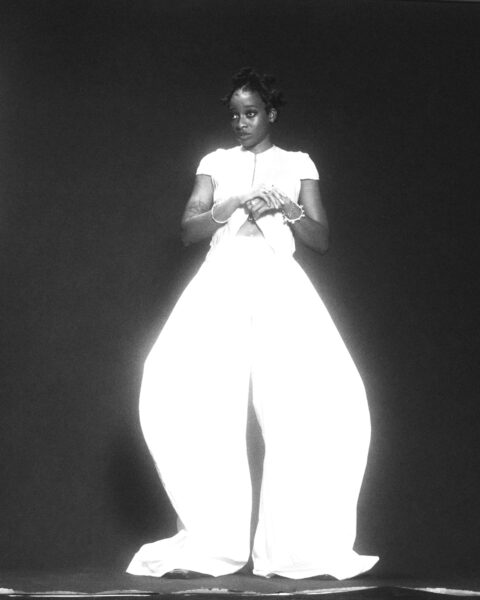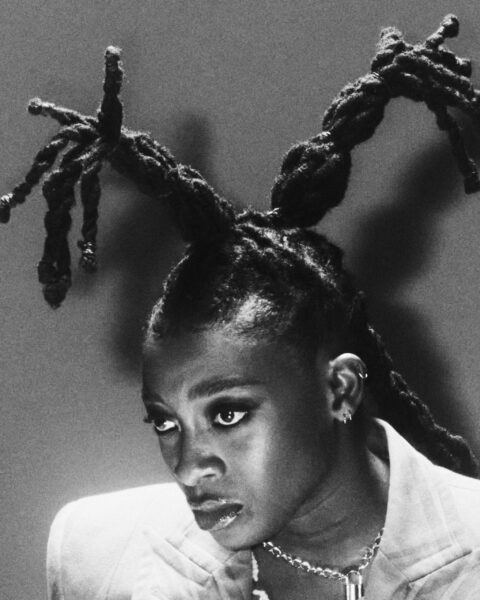There are albums that sound like chapters, and then there are albums that are chapters. Lotus, the sixth studio offering from Little Simz, isn’t just a sonic document—it’s a heartbeat, a shedding, a refusal to sink. It’s a raw, genre-defying testimony of pain, doubt, survival, and rebirth. And in true Simz fashion, it lands with both surgical precision and chaotic beauty.
Where Sometimes I Might Be Introvert gave us grandeur and precision, and NO THANK YOU offered restraint wrapped in defiance, Lotus opens a door to something more unguarded. Simz doesn’t posture. She doesn’t hide behind metaphors or lean on laurels. This is an artist gutting her way back to clarity, one track at a time. “Clarity became really important for me,” she says. And you hear it. You feel it. Loud, quiet, broken, and building.
Produced almost entirely by Miles Clinton James, the album’s sonic palette weaves punk thrash with samba grooves, drenched in smoky jazz and soul whispers. The opener “Thief” claws in with its simmering fury—Simz spitting from a scorched place, her voice low and deliberate. “Flood” (featuring the restless brilliance of Obongjayar and Moonchild Sanelly) follows like a fever dream—gritty, guttural, hallucinatory. Simz isn’t afraid of discomfort. She lives in it, questions it, breaks it down.
A Journal Entry Written in Real Time
But it’s not all edge. The soul-aching tenderness of “Blue” with Sampha is arguably one of the most devastating moments of her catalogue. She doesn’t just write verses here—she confesses. “You was suffering in silence / Like you’re on a desert island”—the line lands like a held breath finally exhaled. “Lonely” continues by mapping the emotional aftermath of a confidence collapse. It’s in these quiet moments that Lotus becomes less an album and more a journal entry written in real time.

Photo by Thibaut Grevet
There is, of course, Simz’s signature mastery of storytelling—her ability to shapeshift between internal monologue and character sketch. On “Young,” she toys with her voice like an actor switching roles. It’s playful, punky, a moment of levity without detachment. “Blood” featuring Wretch 32 and Cashh unfolds like a family dinner turned therapy session.
It’s intimate. It’s generational. It’s alive.
Elsewhere, “Only” with Lydia Kitto glistens with Bossa nova warmth, a love letter whispered rather than sung. “Peace,” featuring Moses Sumney and Miraa May, strips everything back to vulnerability, leaving Little Simz exposed in the best possible way. These are the spaces where Lotus breathes, wide and deep.
Reblooming
But it’s not just the features—stellar as they are—that make Lotus feel communal. It’s the very spirit of the record. Simz lets go of the need to dominate every track and instead builds a village of sound. The title track “Lotus,” with contributions from Yussef Dayes and Michael Kiwanuka, pulses with a spiritual undercurrent—earthy, transcendent, necessary. There’s a point on “Hollow” where Little Simz raps, “I accept that life has its ways / But I don’t have to forgive to finally be okay.” That line—simple, weighty, liberating—captures the essence of Lotus.

Photo by Thibaut Grevet
This isn’t a healing arc with a tidy resolution. It is not about closure. It’s about showing up. About surviving the days you almost didn’t. About finding your voice again, even when it trembles.
By the final track, Simz doesn’t declare victory—she simply reclaims her space. And that’s the power of Lotus: its refusal to be definitive. It’s not an ending. It’s a reblooming.
In a cultural landscape saturated with spectacle and self-branding, Little Simz continues to be something else entirely—honest, shapeshifting, ungovernable. With Lotus, she doesn’t just return. She arrives anew.
As part of her The Lotus Tour, Little Simz will bring her powerful live show to Germany this September, with two headline dates: September 23 at Ufo im Velodrom in Berlin and September 29 at Palladium Köln—offering fans the chance to witness Lotus in its full, visceral glory.



